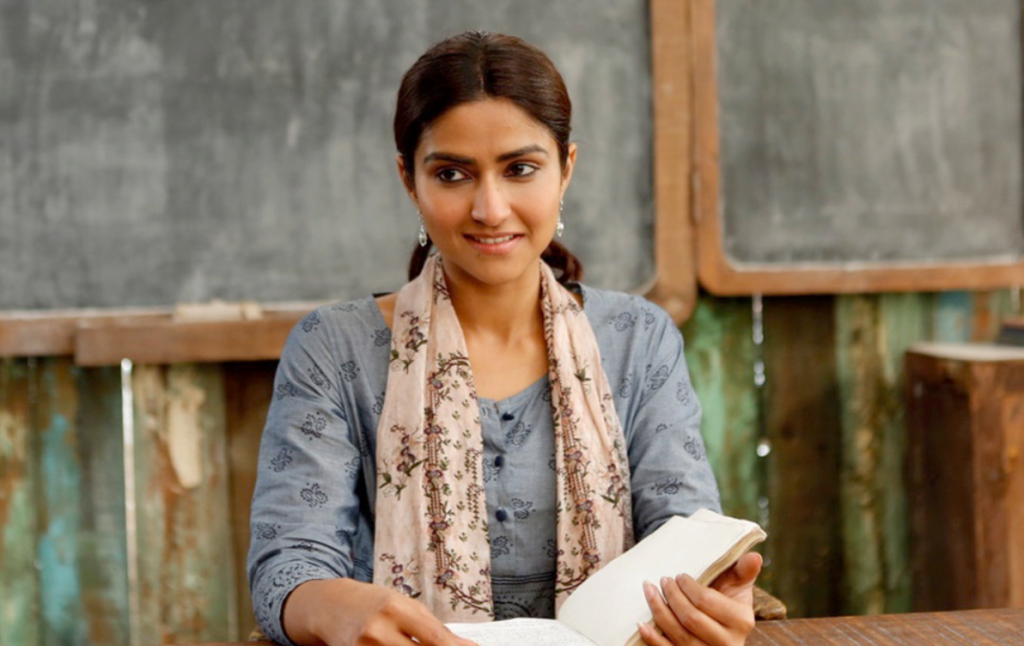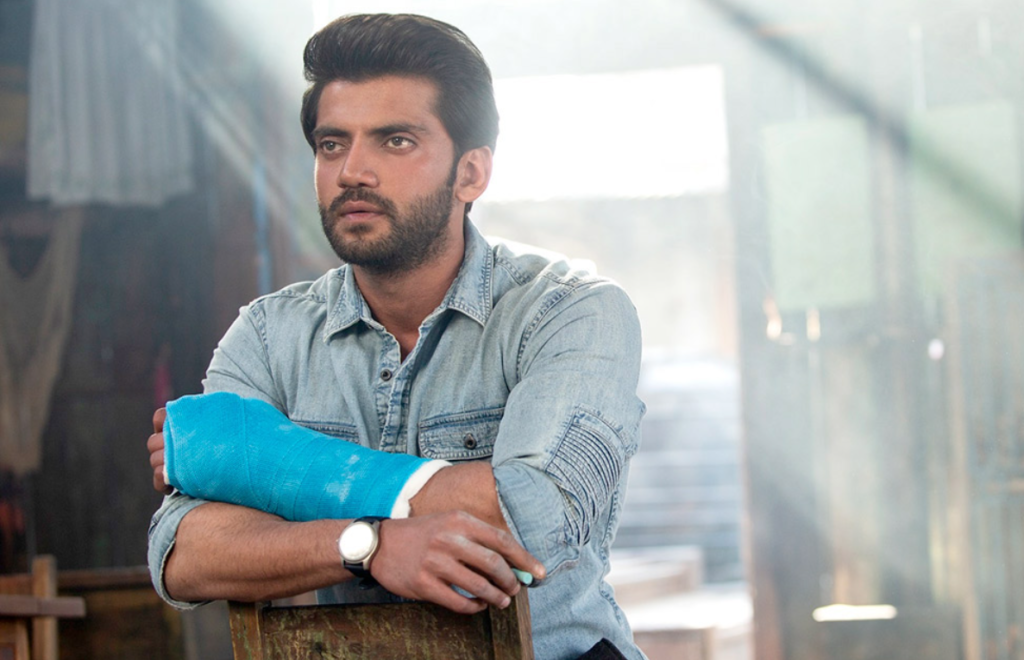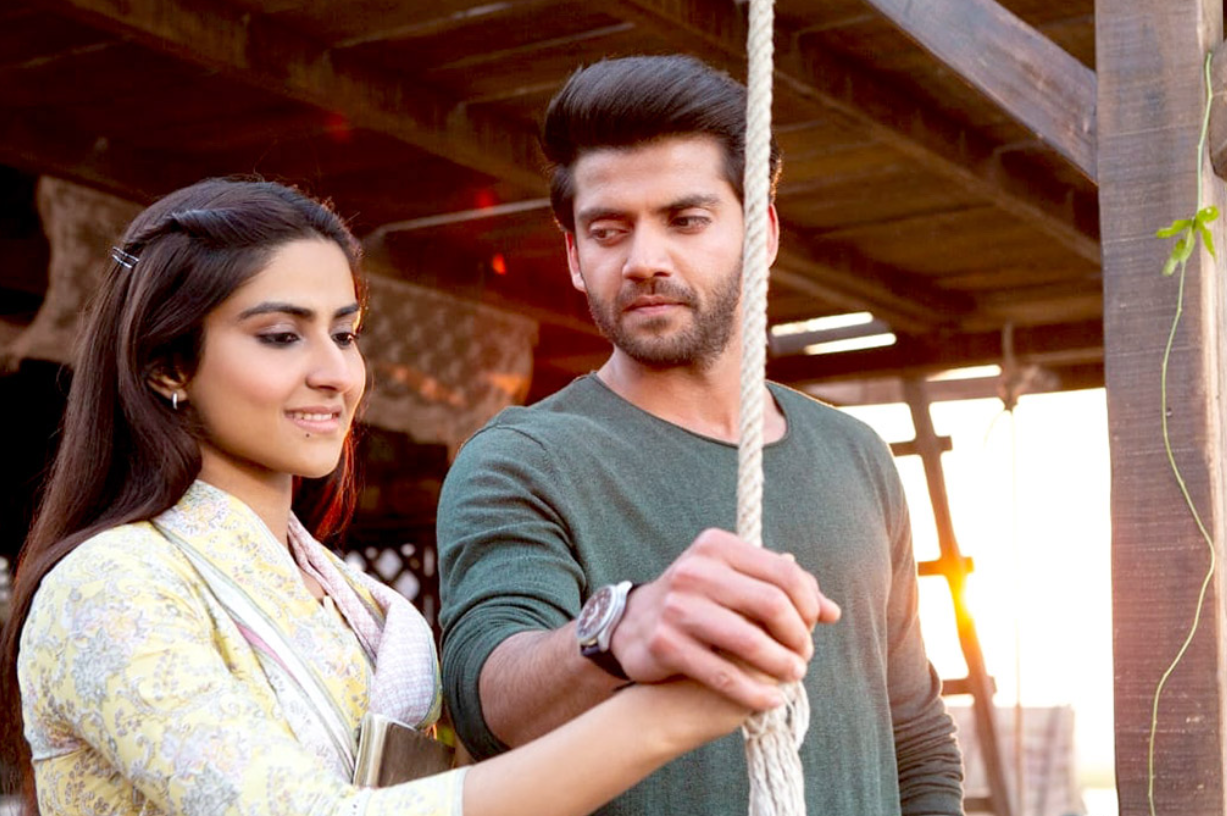How many films have the capability to transport you to a place so picturesque, so serenely beautiful, that at every frame, one feels like taking a deep, cool breath? “Notebook (2019)” is one such movie. The viewer gets easily transported into the magical, untouched beauty of Kashmir. Helmed by Nitin Kakkar and produced by Salman Khan, Notebook is a film whose story sounds like pretty familiar stuff on paper, but its heart lies in its execution. That’s where breathtaking visuals, stirring music, and a sense of calm take you along on a journey that feels oh-so-familiar, yet one that’s utterly enchanting.
Probably the most striking feature of the film from the word go is the cinematography. Kashmir has been referred to many times as heaven on Earth, and Notebook does justice to the name courtesy of excellent camerawork by Manoj Kumar Khatoi. Sweeping shots of lush valleys, tranquil lakes, and snow-capped mountains form an idyllic backdrop to a story steeped in simplicity and nostalgia. The movie showcases rural Kashmir in full splendor: from its small houses to serene water and virgin lands, a sight to watch that is no less than magic. Every shot seems to be beautifully painted onto the canvas as if the cinematographer himself were an artist and relished the beauty around him. Even were the narrative to fail, as it doesn’t entirely, this is one film in which the visual component alone could easily sustain the viewer’s interest.
In Notebook, Kashmir is almost more than a place. It is a character unto itself. The serenity of the landscape bisects the inner and emotional turmoil that the characters go through; for the interesting dichotomy, it makes the story more interesting. First, there is a rustic, low-key charm in the region and the tucked-away feel of it, which reflects in the journeys of Kabir and Firdaus-our two protagonists.

The story of Notebook revolves around Kabir, an ex-army officer who joins as a teacher in a remote school in Kashmir. The twist comes when he finds a big, old notebook left behind by the previous teacher, Firdaus. Through her entries in the diary, Kabir finds himself developing a bond with a woman whom he has never met but gets drawn towards. It’s a story that hangs on their eventual meeting, although it does take its time to get there. The notebook is the bond between these two characters, one created through words written, emotions shared, and connective tissues of a growing attachment between two human souls across physical space.
Although the basic idea of the movie- two characters falling in love without ever meeting is hardly new or innovative, as we have seen in films like “The Lake House“, “You’ve Got Mail”, and “The Lunchbox“, Notebook manages to bring freshness to the idea such that it never gets stale. The comfort in knowing this storyline just makes it familiar and comforting, a return to simpler times when love was more about emotional depth than about immediacy.
All said and done, however, the story isn’t without flaws. At times, the predictability of the plot works against it. You can see the story’s twists and turns from a mile away, and the lack of dramatic tension in key moments might leave some viewers yearning for more. Whatever Notebook lost in terms of narration, it gains with charm, sincerity, and heart. The film never tries putting on a pretentious mantle of being something it is not; instead, it revels in its simplicity and plays to its strengths, which is where the true success of this film lies.

Undoubtedly, Pranutan Bahl as Firdaus is a revelation. The prospect of slipping into the shoes of a character who never shares screen space with her male counterpart through most of the movie must have been intimidating enough; yet, Bhal evinces an effortless grace utterly belied by her newcomer status. Bahl’s performance is a delicate mix of innocence and strength, her character oozing with warmth even through the confines of written words. The audience invests in her story despite never really seeing her interact with the world in the traditional sense. She becomes more of an angelic presence throughout the film- a figure that floats through the narrative, making an indelible mark on both Kabir and the audience.
The performance of Bahl rides on the subtlety with which she communicates deep emotions. Whether it’s in her quiet smiles, the tenderness of her expressions, or the way she conveys Firdaus’ thoughts in her notebook, Bahl breathes life into a character that could easily have stayed abstract. Her chemistry with Zaheer Iqbal, nearly non-existent for most of the film, is palpable through the emotions they both convey separately.
Zaheer Iqbal, as the new kid on the block Kabir, puts in an adequate performance. He carries the brooding and the inner turmoil expected from his role; often, however, his acting is more uni-dimensional compared to Bahl’s silent explosion of emotion. Nonetheless, Iqbal does well for himself, especially since the emotional crux of the entire film rests squarely on his shoulders for most of the screen time.

One of the defining elements of Notebook is its music. The film’s soundtrack, by Vishal Mishra, acts like an emotional anchor to this very beautiful narrative, elevating the overall experience. Soft, melodious, and a perfect complement to the visual beauty of the film- the songs sound great. Tracks like “Bumro,” “Laila,” and “Main Taare” elevate the romantic and introspective moods of the film, blending seamlessly into the storyline.
The music isn’t strained or intrusive in Notebook; instead, it goes with the flow of the narrative, setting up the tone for literally hundreds of emotional beats. In a movie so reliant on mood and atmosphere, the soundtrack has a huge role in the immersion of the audience into the world of the film. These songs not only emphasize the key moments but also extend the unsaid thoughts and feelings of the characters thus providing so much depth to the travel of these characters.
The simplicity is what distinguishes Notebook from the rest of the love stories. Without the usage of large gestures, messy plot twists, and dramatic scenes, the film keeps its audience tied to it. Instead, it takes up a more quiet and subtle route, staying with the smaller, softer moments carrying the essence of bonding between two humans. Whether it was the alone time for the reflectionally sitting Kabir by the lake or the heartfelt journaling of Firdaus, the film is at its best whenever it leans into these quiet, introspective beats.
This quiet charm, combined with some beautiful visuals and enchanting music, makes Notebook an enjoyable piece for those willing to appreciate a more leisurely and reflective look at romance. It isn’t necessarily groundbreaking or offering anything particularly new to the genre, but it does manage to maintain a warm and soothing atmosphere that extends well after the credits roll. Notebook is one such film that strikes a chord for its very reason even when it has a predictable storyline. It’s high on emotional appeal, breathtaking Kashmir, and magnificent performances by Pranutan Bahl and Zaheer Iqbal. In the storytelling, though it does not quite break new grounds, in heart and sincerity it does. A film that will come as a respite to the loud and often chaotic world of modern cinema, Notebook is like a cool breeze- a film that is so easy to watch and tough to forget, and actually a celebration of love, beauty, and simplicity.

Chaitanya Tuteja is someone who enjoys sharing his thoughts on books, movies, and shows. Based in India, he appreciates exploring different stories and offering honest reflections. When not reflecting on his favorite media, Chaitanya enjoys discovering new ideas and embracing life’s simple moments.

